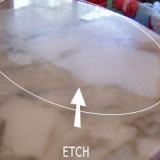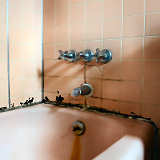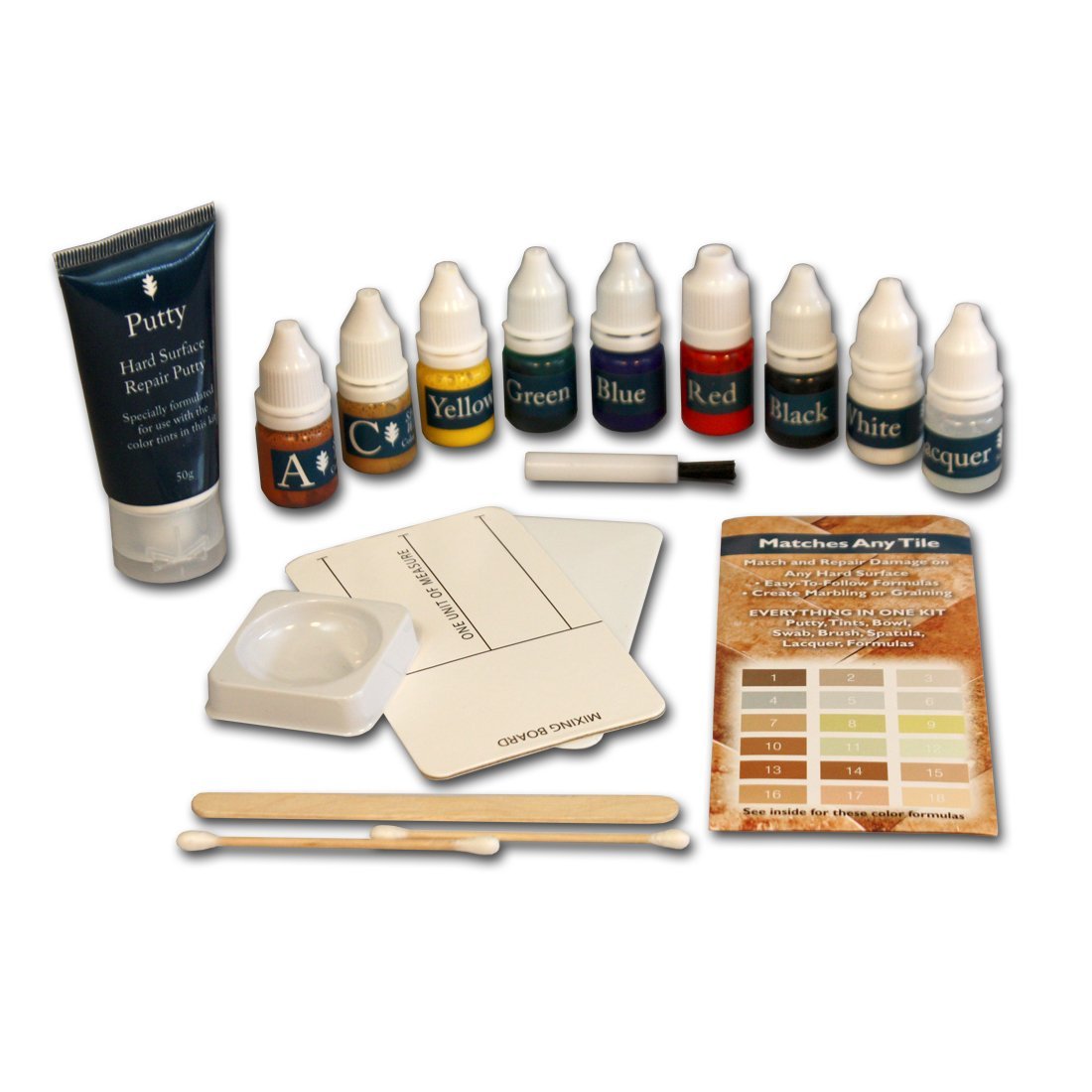Natural Stone Sealer
Frequently Asked Questions (FAQ's)
One of the most frequently asked questions we hear on sealing is:
"How do I know when and if a natural stone sealer should be applied to my stone?"
Try the water test.
Browse through more FAQ's below!
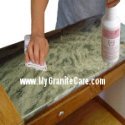 |
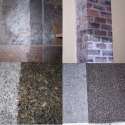 |
| Sealers | Enhancers |
- Q. What's the difference between a topical sealer and an impregnating sealer?
A. A topical sealer sits on top of the surface while an impregnating type sealer sits below the surface. Most topical sealers are not for use on stone.
Here is more information on the differences between sealers. - Q. Can I apply a sealer myself?
A. Yep - most sealer are easy to apply. - Q. Is it possible to apply too much sealer?
A. Yes it is. While you do need to make sure that your stone is thoroughly saturated, any excess sealer that remains on the surface of your stone should be wiped off with a dry towel.
If the sealer dries on the surface, your stone might look duller or filmy.


Sealers Enhancers - Q. Does my stone have to be completely dry before applying a sealer?
A. Yes. If your stone is not dry, the sealer may not penetrate the areas where water is present and that portion of your stone will remain unsealed. - Q. How do I apply a natural stone sealer to my walls?
A. Use a roller, paint brush, rag or lambs wool applicator. Saturate your applicator and work from the top down. Make sure to thoroughly saturate the surface of your stone and wipe up any excess sealer to prevent streaking. - Q. How do I know if I need to seal my stone?
A. First: Determine if your stone is in an area that is subject to staining.
Second: Before your stone is installed, (on a scrap) perform the
oil and lemon juice test. - Q. How do I know if my sealer is actually working?
A. The water test. - Q. How often do I need to apply a natural stone sealer?
A. This depends on the natural Stone sealer you choose. Some manufacturers recommend every 6 months to a year. Others, every 3-5 years or even every 10 years. - Q. Does a sealer make my stone bullet proof?
A. Nope. A sealer does not protect the surface of your tops - it protects your stone from within by erecting a barrier to staining agents. A sealer fills in any open voids or pores so that a staining agent cannot or at least has a really hard time! A sealer gives you more time to wipe up spills. - Q. Are all sealers the same?
A. No, not even close. Here is a little more info on stone sealers and what makes them different. - Q. Once my stone is sealed, how quickly should I wipe up spills to keep my stone from staining?
A. ASAP - Q. Will a natural stone sealer change the look or color of my stone?
A. Impregnating sealers will not. A topical sealer might. A color enhancer will. - Q. What's the use of a sealer?
A. A sealer helps prevent staining. - Q. Will a natural stone sealer keep my grout lines clean and stain free?
A. It will certainly help. The sealer will prevent dirt and grime from absorbing deeply into your grout and make cleaning easier. - Q. Will a sealer make my natural stone flooring slippery?
A. Impregnating sealers are designed to penetrate below the surface of the stone. Because of this, it will not make your natural stone flooring any more or less slippery. - Q. How do I make the colors stand out on my honed travertine flooring?
A. A color enhancer. This will give your tiles the wet look.
Make sure to wait a few weeks after the installation of your tiles before applying the color enhancer. - Q. Will a marble sealer protect my marble from damage?
A. No.
 |
 |
| Sealers | Enhancers |
 |
 |
| Sealers | Enhancers |
Return from Natural Stone Sealer FAQ's
to Sealing Granite Countertops & Other Natural Stones
Return from Natural Stone Sealer FAQ's to My Granite Care Home


